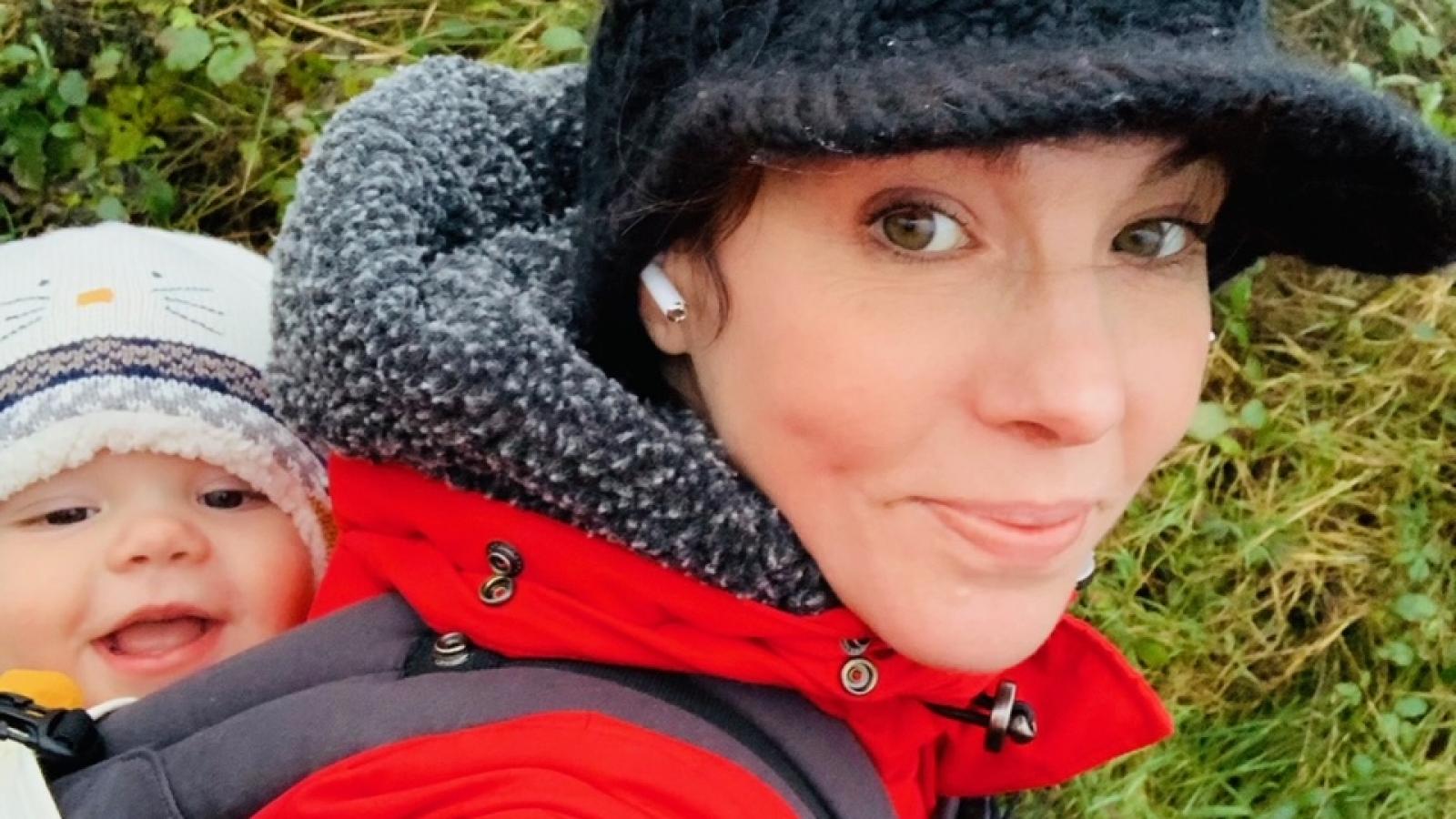Vanessa's story
"I remember receiving the news. My dad was with me and I couldn't believe it."

In 2009, Vanessa Clarke, who was then 26, found what looked like a blister just behind her knee. “It was very unassuming, and it didn’t look like anything major but the fact that one my parents’ friends had passed away a few weeks earlier from melanoma made me decide to get it checked out” says Vanessa, who is from Limerick.
She was living in Dublin at the time and she returned home to Limerick to visit a locum doctor. Vanessa was then referred to a dermatologist, who took a look at the mole and said it had to come off. She had surgery some weeks later, after which she received a diagnosis of stage 3 nodular melanoma.
“I remember receiving the news; my dad was with me and I couldn't believe it,” she says. “I think all I had in my head was, okay, what this is a malignant melanoma; we don't know how far it's gone. What's the next step?”
Further removal of nodes behind her knee revealed that they were also cancerous, and that the cancer had also spread to the lymph nodes in her groin. “That was a shock, even to my surgeon, as he had only taken out the lymph nodes in my groin as a precaution. But, as he explained, melanomas can be aggressive and unpredictable, and you don’t know how they’re going to behave,” she says.
"The Irish Cancer Society was very supportive and very encouraging for me to use their services and they were fantastic at the time."
Vanessa was also diagnosed with lymphoedema in her right leg, as a result of having her lymph nodes removed.
At that time, immunotherapy drug Interferon was used to treat melanoma. However, in Vanessa’s case, because she had several allergies and asthma, it was decided that it wasn’t suitable for her. Instead, she travelled to the UK to receive BCG injections in a clinic in London.
She visited a hospital in Limerick for treatment for her lymphoedema, where she received lymphatic drainage. “I remember the Irish Cancer Society was very supportive and very encouraging for me to use their services and they were fantastic at the time” she says. After that, Vanessa was closely monitored over the next five years to see if the cancer had returned. “Luckily, it didn’t and it still hasn’t,” she said. “After five years, I was still going for scans every six months or so, and I think I just wanted to get on with my life and put it behind me. I decided to stop the scans, and my doctors reassured me that if I felt anything at all was wrong with me, they’d get it checked out.”
She is sharing her story to raise awareness of melanoma, especially among you people. “I think a lot of people think skin cancer is very treatable. If it ever comes up that I had skin cancer, people sometimes think, that’s not so bad is it? That’s the kind of attitude I have come across a lot and it’s concerning that people don’t always appreciate how deadly it can be.”
She would also like to raise more awareness of lymphoedema. “My journey with that was difficult. It was very challenging because it was a constant reminder of what I had gone through. In the initial stages, it required a lot of management and I was getting a lot of bandaging as well, which would leave me incapacitated for maybe two to three days or sometimes a week to try and get the swelling down,” she says. “What I found was very important for dealing with lymphoedema afterwards was maintaining exercise in a way that’s best for you. At the time, I was told a lot that I couldn't do this or I couldn't do that. I think the thinking around managing lymphoedema has definitely changed since then, but I did whatever I felt was best for me - a lot of yoga and walking and some running. That helped my mental health as well.”
Today, Vanessa is in good health and the mother of two wonderful boys. She manages the lymphoedema in her leg very well through various treatments and by wearing supportive garments.
Vanessa urges people to support Daffodil Day this year. “I’m very grateful to be here today to be able to share this story” she says.
Her advice to anyone who has received a diagnosis is to take things by degrees.
“I think really what got me through at the time was just trying to focus on what was coming next and what the next step was. Just take every day, one day at a time and live in that day because I think if you try to look at the whole picture, if you go online and start Googling things; that’s just not where you need to be. Try to remain positive as best you can, focus on your recovery and always seek a second opinion on your treatment.”
